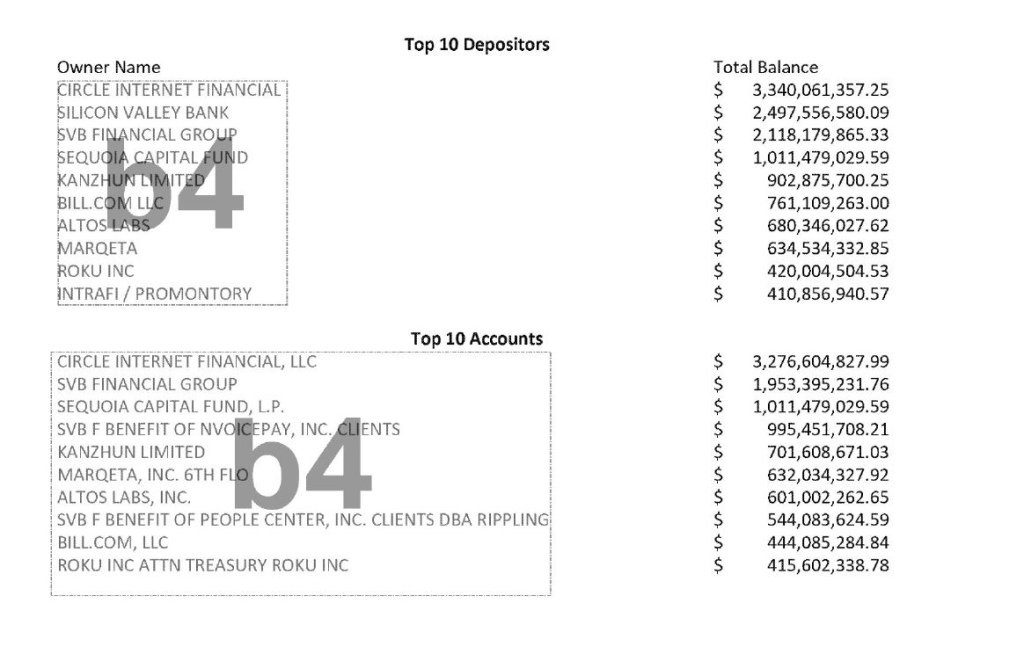Sources:
Read More »Tag: startups
The Day Ted Cruz Stopped A Bad Internet Bill
Well, this was a bit of a surprise. Over the past couple of weeks I wrote about how Senator Josh Hawley was planning to try to hotline his terrible No Section 230 Immunity for AI Act. As we have explained multiple times, the bill is so poorly drafted that it would make a mess of the entire internet. After rumors of two attempted hotlines (effectively trying to sneak the bill through if no Senator objects) planned for last week, and then a rumor of a Tuesday night attempt, Hawley finally took to the floor Wednesday morning to make the push. If C-SPAN’s clunky embed feature works, you can watch it here:
The Day Ted Cruz Stopped A Bad Internet Bill
Related:
The Big Names That Got Backstop for Billions in Uninsured SVB Deposits

(Bloomberg) — When federal regulators stepped in to backstop all of Silicon Valley Bank’s deposits, they saved thousands of small tech startups and prevented what could have been a catastrophic blow to a sector that relied heavily on the lender.
Big VC, Tech Got Backstop for Billions in Uninsured SVB Deposits (archived)
Pentagon Mobilized to Support Tech Startups After Bank Failure
The failure of Silicon Valley Bank presents the Defense Department with warnings—and opportunities.
Pentagon Mobilized to Support Tech Startups After Bank Failure
Why repealing or weakening Section 230 is a very bad idea
Section 230 is vital to free speech on the internet, and its critics are often misguided or wrong about the law.
Why repealing or weakening Section 230 is a very bad idea
Congress’ Best Idea to Save Local Journalism Would Actually Hurt It + Some Temporary Good News
Congress’ Best Idea to Save Local Journalism Would Actually Hurt It
Meta reported $114.93 million in ad revenue in 2021, whereas Google reported $209 billion. But determining how much of that publishers should get is difficult—and the JCPA doesn’t even try. One version of the JCPA proposed platforms and publishers negotiate an agreed-to payment, and if they couldn’t come to a consensus, they’d enter forced-arbitration with no formula for what is fair. But whether the money would end up being vast or a modest bump to the bottom line, not every publication stands to benefit if the JCPA becomes law. While the JCPA’s alliances allow for partnerships, exclusionary elements of the JCPA would encourage big brands to unite selectively at the expense of smaller ones and shut out niche independent journalistic outlets altogether.
Related:
JCPA Update: The Dangerous Link Tax That Still Won’t Save Local Journalism
The original text of the JCPA already authorized print media companies to form one or several cartels and collectively bargain with the largest online platforms—defined in terms that single out Facebook and Google. Although the bill hinted at these news cartels being able to demand payment for merely linking to their content, or hosting snippets like the results you get from Google News, the mechanism by which they would be paid was left vague. However, the fact that the bill allowed news companies to withhold content strongly suggested a claim to some sort of property right, or ancillary copyright, that the targeted platforms would owe for hosting links and snippets.
Some Temporary Good News: None Of The Really Bad Internet Bills Seem To Have Made It Into The NDAA
This would also hurt independent media and bloggers (you would have to pay a ‘link tax’ to corporate media for linking to their articles—see below image)! So far, it hasn’t passed (it was attached to the NDAA) but there’s still the omnibus spending bill and the next session of Congress!

J.D. Vance’s Wall Street Tax Dodge
The faux-populist GOP Senate candidate, J.D. Vance, structured his finances to take advantage of a notorious tax loophole — one he could help preserve if he wins.
J.D. Vance’s Wall Street Tax Dodge

You must be logged in to post a comment.